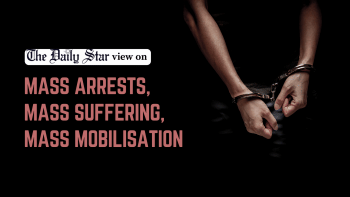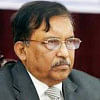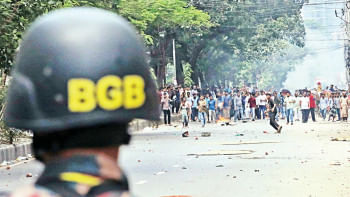Stop police culture of implicating rivals

After the fall of a repressive political regime, we have entered a new era of governance. However, police still seem to be trapped in the old culture of looking at things through a partisan lens. According to a report by Prothom Alo, police are arresting Awami League leaders and activists as accused in cases they had filed before August 5, when the regime fell, although it was BNP-Jamaat men and general protesters who were initially accused in the First Information Reports (FIR) of those cases.
The newspaper cited 34 such cases filed between July 17 and August 1 relating to the murder of 64 people, where BNP-Jamaat men and protesters had been shown as accused. The initial FIRs of three other cases filed by victims' families also mentioned the same coterie of suspects, although they later claimed they didn't file those FIRs. For example, the mother of one victim, who was fatally shot on July 16 in the New Market area, denied accusing BNP-Jamaat men although the initial FIR implicated them. But after the arrest of Awami League leaders Anisul Huq and Salman F Rahman on August 14, a revised FIR was submitted to court replacing the names of previous suspects with "unidentified accused". Anisul Huq, Salman F Rahman, and another person were also shown arrested and taken on remand under that case.
This indicates that police did not carry out due diligence and probe into the killings before arresting anyone. Moreover, they just randomly replaced the accused, calling the whole exercise into question. Such laxity only weakens the legal basis of court cases and denies victims their right to a proper trial. At the same time, there is a risk that actual perpetrators will go scot-free. Besides, the plethora of cases being filed against Awami League leaders and former MPs and ministers without evidence is making a farce of the judicial system, with legal experts saying these cases will not last in court or even pass the initial stage.
What's equally concerning here is the police's culture of always accusing the opposition. Before August 5, it was BNP-Jamaat men who were their favourite scapegoats, and now it is AL men. This is not only undermining the spirit of the anti-discrimination movement that led the mass uprising; it is also eroding public confidence in police. When discussions of freeing police force from the shackles of politicalisation are going on, the above pattern of police behaviour shows where the priorities of any reform initiative should be. The legal system must not be used as a tool of retribution under any circumstance. Rather, to ensure justice, police must investigate any cases without bias. They must come out of their mindset of appeasing those in power, and instead vow their loyalty to the people.
Follow The Daily Star Opinion on Facebook for the latest opinions, commentaries and analyses by experts and professionals. To contribute your article or letter to The Daily Star Opinion, see our guidelines for submission.


 For all latest news, follow The Daily Star's Google News channel.
For all latest news, follow The Daily Star's Google News channel. 









Comments